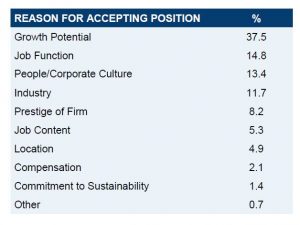The Global MBA Experience at London Business School

One of the primary social impacts of increasing globalism is the sense that world feels like it’s shrinking. But for business, that means there are opportunities for expansion unlike ever before. As it has become easier than ever to communicate and work together across vast distances, so too has it become more likely for organizations to grow their businesses. And according to a recent YouGov Survey, globalization is still seen as a force for good rather than bad in the world.
“Unsurprisingly, the countries that are the biggest enthusiasts of globalization are the ones that have benefited most from it—the poorer nations of East and South East Asia,” it explains. “Here, belief that globalization is a force for good reaches at least 70 percent in all countries …”
For that reason, it has become more important than ever for MBAs to gain a global perspective of business while in school. Not only do MBAs with global experience better understand the impact of language, culture, traditions, government, legal structures and politics on business, but they’re also more likely to be able to make use of opportunities that international markets present.
The Global MBA Experience
So, what makes an MBA program global? There are a few factors that go into it including:
- Diversity of students and faculty.
- International orientation of curriculum and course material.
- Employment and recruitment opportunities for graduates.
- Reach of the alumni network.
- Location of the school.
- Partner programs.
Global MBA programs tend to offer a level of international exposure for students and faculty that is not often seen within a traditional, local MBA program. This means that group projects and discussions aren’t based on a single viewpoint but rather reference a variety of regions and countries. These programs also typically include opportunities for additional learning in another country through exchange programs or geographically diverse recruiting partners.
And there’s no hiding the fact that a Global MBA experience benefits both students and companies. McKinsey & Co. analysis shows that companies with a more diverse workforce perform better financially than respective national industry medians. Harvard Business Review recently wrote on the topic as well, saying, “by correlating diversity in leadership with market outcomes as reported by respondents, we learned that companies with 2-D diversity out-innovate and out-perform others.”
Global Business Experiences at London Business School
It’s for this reason and many others that the London Business School has made globalization a priority. Gareth Howells, the Executive Director of MBA & MIF Education, explained it this way. “At London Business School, being global is in our DNA and informs everything we do. By further expanding our reach through the expansion of our global menu, we believe we can ensure our graduates create value and impact all over the world. Global talent is an integral part of today’s workplace with everyone seeking to create success in a multicultural environment.”
Not only is the London Business School 2018 MBA class made up of 70 nationalities, but the school is also about to add even more of a global experience to its MBA program thanks to their Global Business Experiences (GBEs). Each GBE is a week long program that consists of faculty briefings, guest speakers, site visits, workshops, panels, company visits and opportunities to engage with local LBS alumni in each region.
The GBE program gives students the opportunity to apply their academic learning in a real-life, global business environment and ensures students have the skills to constantly evolve their global mind-set. The goal of the program is to help MBAs flourish outside of their comfort zones and to gain familiarity and experience working with classmates and within organizations from different cultures and industries around the world.
The best part about the GBE is that no program is the same. Each experience changes with the location and the organization hosting the experience. Starting this August, MBAs at the London Business School will:
- Experience two new regions for the GBEs including Lima and Tel Aviv.
- Have additional language opportunities: Italian and Japanese have been added to LBS’ existing provision of French, Mandarin, German, Russian, Portuguese, Arabic and Spanish.
- Increase their knowledge with the Global Business Practice course supporting students with cultural awareness.
GBE Student Experience
Below are two student testimonials about the Global Business Experience at LBS.
“What appealed to me was the fact that this GBE had a component where I was working with an entrepreneur,” explained Jenny Troung, a 2013 MBA student who visited South Africa. “This meant that what I was doing in those five days was related to what I had been learning in the previous year. We helped the entrepreneur with his accounting to figure out if it is more profitable to sell a chair compared to an ottoman. And that was real business insight that I had to apply from School.”
“My GBE in Johannesburg was life changing,” described Marie Milleron, a 2015 MBA student. “Whether it was helping our township entrepreneur with the little resources she had, or understanding the challenges of a developing economy with a heavy past, it was a unique time of personal growth and reflection.”
To learn more about the GBE program at London Business School, visit the school website.
Landing A Job At Accenture

In the consulting industry, few names loom as large as Accenture, which operates at the intersection between information technology and business with specialties in security and systems migrations.
The Top Consulting And Strategic Management Chicago MBA Programs

While industries such as investment banking may be attracting fewer MBAs, that’s not the case for consulting. Year-after-year it continues to be the top draw for MBA graduates. The 2015 Prospective Student Survey conducted by the Graduate Management Admissions Council (GMAC) revealed that a job in consulting services or management consulting upon graduation topped the list for both millennial (41 percent) and Gen X (27 percent) respondents. Continue reading…
Rotman Launches Canadian Graduate Women in Management Conference

On February 1, 2017, for the first time, graduate business students and industry leaders from across Canada will have a chance to come together and discuss the most pressing matters facing the business community. The annual event, titled the Canadian Graduate Women in Management Conference, was organized by the Rotman Women in Management Association (WIMA) and will be hosted by the Rotman School of Management at the University of Toronto.
The theme of the inaugural year is “Men as Allies and the Parity Proposition,” which will highlight the role of gender inclusivity in expanding the discourse on gender equity. Attendees can expect to hear from a variety of speakers including Bruce Simpson, Director (Senior Partner) at McKinsey & Company, as well as Jennifer Reynolds, Head of Women in Capital Markets.
To get more insight, we spoke with Alex Walker Turner, MBA ’17 and Vice President of Communications at Rotman WIMA. Here’s what she had to say. Continue reading…
MIT Sloan 2016 Employment Report Reveals Slipping Salaries

The MIT Sloan School of Management, late last week, released its 2016 Employment Report for MBAs, revealing slightly slipping salaries year over year and slightly lower percentages of graduates heading into consulting and technology than in prior years. The pharmaceutical/healthcare industry drew the third largest percentage of graduates—5.8 percent—knocking investment banking out of the top three for the first time—perhaps ever. Investment banks drew just 4.7 percent of the 2016 class, down from 6.1 percent last year, 6.8 percent in 2014 and 8.1 in 2013.
As it has for several years running, consulting snapped up the most MIT Sloan grads this past year, 30.5 percent, but that represents a second consecutive year of decline, from 33.9 in 2014 and 32.1 in 2015. The technology sector drew almost as many graduates as consulting—29.3 percent of the class. That was down slightly from 2015’s 30.7 percent, but an increase over 2014’s 26.1 percent and significantly up from the 19.2 percent that went into tech in 2013.
McKinsey and Amazon Compete with Founders’ Dreams
In terms of absolute numbers, more MIT Sloan ’16 MBAs headed off to work for McKinsey than any other company—26, or 6.6 percent of the entire class. Amazon was second, luring 23 recent grads. Falling right between these two top hiring firms were the 24 graduates not seeking employment because they were starting their own businesses, down slightly from last year’s 28 founders. Representing 6.1 percent of the graduating class this year (and 7 percent last year), the ranks of entrepreneurial founders at MIT Sloan rival schools like Harvard Business School, where founders made up 6.8 percent of the most recent class. But they still trail Stanford Graduate School of Business, with its whopping 15 percent of 2016 graduates who started their own ventures upon graduation.
The other consulting giants—Bain and Boston Consulting Group—drew the next largest contingents of recent grads, 17 and 14 respectively. Then came tech firms Microsoft and Google, snapping up nine and eight a piece. Bank of America Merrill Lynch was the sole investment bank named among Sloan’s top hirers in 2016, employing five recent grads.
Salaries Hover at or Below Prior Year Levels
As for how much money Sloan grads are bringing home, the median base salary for 2016 grads remained at 2015 levels, $125,000. The mean base salary for graduates heading into what MIT Sloan breaks out as service industries—consulting, software/internet, investment banking/brokerage, retail, private equity/venture capital, investment management, diversified financial services and media/entertainment—was $126,841, down slightly from the prior year’s $127,601. Grads heading into manufacturing industries—including pharmaceutical/healthcare, computers/electronics, consumer products, automotive/aerospace, oil/energy, telecommunications and transportation/equipment/defense—claimed a mean starting salary of $120,696, down from last year’s $123,416.
Fewer students—66.1 percent—reported signing bonuses in 2016 than the 75.3 percent who reported them in 2015. But 2016 saw a rise in the prevalence and amount of other guaranteed comp. This year, 22.1 percent of graduates reported receiving other guaranteed compensation, with a median of $23,401. The year before, only 18.8 percent expected other guaranteed compensation and the median was lower at $20,500.
The highest starting salary of the Class of 2016—$200,000—went to a student entering what MIT Sloan categorizes as “Manufacturing, Other,” explaining in a footnote that other refers to manufacturing, telecommunications, and transportation/equipment/defense. The lowest, $50,000, went to a grad heading into the retail industry.
MIT Sloan breaks out signing bonuses not by industry but by function. The highest signing bonus for this most recent group of grads was $77,000, awarded to a graduate who is now working in product management/development. The median signing bonus varied depending on function, with leadership development/general management/consulting/marketing/operations roles coming in around the $25,000 mark but investment banking and “finance, other” (including corporate finance, finance operations, treasury and M&A) reporting median bonuses of $49,000 and $47,500 respectively. The median other guaranteed compensation, meanwhile, was $19,500, ranging from $100 at the low end to $89,380 at the upper limit.
Tech Tops Consulting for Second Year Running in Drawing Sloan Interns
A look at where MIT Sloan Class of 2017 MBA students chose to intern shows technology holding the greatest sway, with 29 percent of students heading to tech firms for the summer. This is down from 2015, when 33.2 percent headed into tech for their internships, but it still outdistances the consulting industry, which this past summer drew 21.9 percent. Unlike with full-time jobs, investment banking held onto the third spot in terms of attracting interns, drawing 8.1 percent of the class. Pharma/healthcare, which beat out investment banking in terms of full-time positions, attracted 7.4 percent.
Salaries for summer interns at Sloan edged upward slightly depending on the industry. For students interning in service industries, the median monthly pay was $8,000, no change from the summer before. But the mean monthly pay moved up to $8,633, from $7,771. For students interning in manufacturing industries, the median monthly salary stayed constant at $7,200, but the mean monthly salary dipped from $7,102 last year to $6,871 for the most recent crop of interns.
Timing of Job Offers, Reason for Accepting Jobs
In terms of the timing of job offers, 88.7 percent of MIT Sloan 2016 grads had job offers at the time of graduation, down from 91.5 percent the year before. But by three months out from graduation, 95.3 percent had offers, pretty much on par with the prior year’s 95.6 percent.

Source: MIT Sloan 2016 MBA Employment Report
A little dip in salaries may be no big deal for MIT Sloan grads, according to an additional set of metrics shared in the school’s employment reports. Unlike many peer schools, MIT Sloan includes statistics on why graduates accepted the jobs they did. Far and away the most important factor contributing to what job Sloanies accepted was potential for growth, cited by 37.5 percent of graduates. Job function was the reason reported by 14.8 percent, followed by company culture, cited by 13.4 percent, and then industry, named by 11.7 percent. Far fewer Sloanies accepted the jobs they did because of firm prestige (8.2 percent), job content (5.3 percent), location (4.9 percent), compensation (2.1 percent) or commitment to sustainability (1.4 percent).
View the complete MIT Sloan 2016 MBA Employment Report here.
This article was edited and republished with permissions from Clear Admit.
A Deeper Look at the 2016 Michigan Ross Employment Report

The University of Michigan’s Ross School of Business earlier this month released its 2016 MBA Employment Report, and the results are nothing short of stellar.
